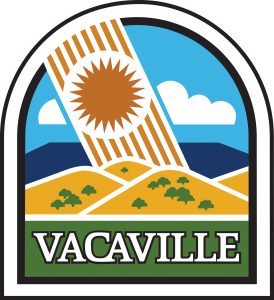Sponsored content brought to you by
Why is Vacaville, CA, focused on becoming a major regional biomanufacturing hub?
Vacaville has been a biomanufacturing hub since the first large-scale manufacturer arrived and anchored the biomanufacturing cluster in the 1980s. The city leveraged its proximity to the Bay Area, affordable land and housing, educated workforce, and quick permitting expertise to expand its biotech industry for the last 35 years. The biotech industry provides local residents with careers offering high salaries and opportunities for upward mobility. In addition, biomanufacturing companies provide direct financial benefit to the community and also contribute indirect benefits with a multiplier. The existing companies have proven to be excellent corporate partners with the community.
What financial, educational, and technical resources does the city of Vacaville bring to this effort?
Vacaville continues to capitalize on available land near one of the most established biomanufacturing clusters anywhere in the world. Local colleges and universities specialize in biotechnology education and training to provide an excellent talent pool. The cluster of companies means that there is readily available technical expertise nearby. Financial incentives include property and sales tax programs and available resources including the State of California’s sponsored training and CalCompetes programs.
The California Biomanufacturing Center (CBC) is a nonprofit organization located in one of the original “Gardens of Eden” for biotech R&D and commercial activity. How does the CBC work with Vacaville to bolster the city’s biomanufacturing capabilities?
The CBC is focused on the economic and workforce development needs of the biomanufacturing industry. The organization maintains a broad advisory council to ensure the industry has a dedicated coordinating body to assist companies expanding in the area. The CBC convenes regular meetings with industry leaders to explore technology and training frontiers, to discuss priorities for supporting industry growth, and encourage the development of emerging fields.
What are a few of Vacaville’s most recent activities that have helped build its biomanufacturing expertise and infrastructure?
Vacaville has dramatically increased its ability to educate and train workers in biotechnology. For example, Solano Community College has developed a complete educational pathway where articulated high school programs feed three certificates and an Associate’s degree which feeds seamlessly into a Bachelor’s of Science in Biomanufacturing degree. Graduates can then attend one of the six partner university graduate programs. This pathway, from high school through PhD, has multiple entry and exit points. The newest certificate teaches students the skills and knowledge required to go into the production of cell and gene therapies. In 2017, Solano College opened a four-suite biomanufacturing training facility within its new $34 million Biotechnology and Science Building.
Another example is with UC Davis, which offers an undergraduate biotechnology degree and a graduate Designated Emphasis in Biotechnology, and is only 15 miles away. UC Berkeley has also added a new Master’s of Bioprocess Engineering.
Recent investments by biomanufacturers include Agenus (announced July 2021), Polaris Pharmaceuticals (January 2022), and Transwestern Ventures (June 2022), and Mettler-Toldeo Ranin (June 2022) located in the industrial estate designated as the California Biomanufacturing Center.
What is Vacaville’s five-year plan, for example, to raise its visibility and achieve its goal of becoming a key biomanufacturing hub?
Vacaville is a long-established biomanufacturing hub, with a mature supply chain and training expertise dating back 35 years to the first large-scale investment in the area by Alza, in 1987. Over the next five years, we anticipate the completion of Phase One of the industrial estate at the CBC which is nearly 1,000 acres of land with capacity for as many as 5 to10 additional manufacturers. This phase has the potential for as much as $3 billion in new investment supporting thousands of (direct and induced) jobs.
Don Burrus, Director of Economic Development Services [email protected]
Join the Bay Area’s Biomanufacturing Hub

